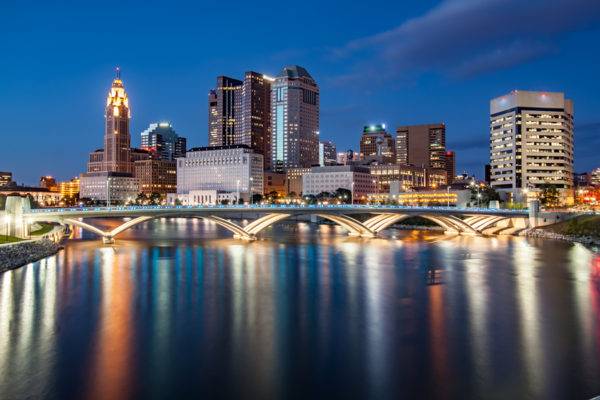Ohio’s capital city, Columbus, is rumored to have won the U.S. Department of Transportation’s (DOT) Smart City Challenge, receiving $40 million from the DOT, and $10M from Microsoft co-founder Paul Allen’s Vulcan Inc. — along with another $90 million pledged by private sector partners to change the mobility landscape of the city.
“This funding is a game changer for the City of Columbus and central Ohio,” Sen. Sherrod Brown (D-OH) said on his website earlier today, possibly slipping the news a bit early. “I’m glad the Department of Transportation recognized what so many of us already know – Columbus is a smart city that deserves to win this challenge.”
A Vulcan spokesperson said the results are not yet official. Other competing cities were San Francisco, Austin, Portland, Pittsburgh, Kansas City, and Denver.
So what did this smaller, Midwestern city do to beat out more “tech-identified” hotspots like San Francisco and Austin? What was in their bid that stood out to the team of judges?
Columbus decided to address their main challenges head-on: socio-economic and geographic isolation, mobility dominated by the private automobile, an aging population with younger members of the community moving to denser areas of the city, lack of access to mobility for low-income neighborhoods, but still a city with a growing economy and population with its related housing, traffic, and environmental challenges.
One thing that is certain – with that litany of issues, Columbus identifies with the same problems that many U.S. cities are facing. If they succeed in solving for these issues using this DOT grant and private investment alongside it, they will likely have solutions that can be replicated and scaled to build smart cities nationwide.
The Columbus approach
Columbus’ hopes to address their challenges with these five strategies:
A Smart Corridor to provide access to jobs – Columbus will build a pathway with concentrated transit services that address last mile connections to connect the work force with their employment centers.
Real-time and integrated Data for Smart Logistics – As a major freight hub with a multimodal inland port, Columbus plans to enhance timeliness and quality of the traffic condition data and develop a routing app for trucks to improve reliability and operational efficiencies.
Connected Visitors – Columbus plans to fund a private sector app for events and activities in the city that will provide real-time information related to traffic / parking conditions and transit options.
Connected Citizens – With a specific focus on Columbus’ Linden neighborhood mobility challenges linking citizens to jobs, healthcare, and education services, the city will work with local private and public social services providers to improve mobility and transit options.
Sustainable Transportation Options – Similar to the other finalist cities in the Smart Cities Challenge, Columbus plans to support and encourage an ecosystem around car-sharing, electric vehicle use, and smart grid mobility patterns for a more sustainable and mobile city.
And as for the runners-up…
So what’s next for the other six cities that did not win this particular challenge? We spoke with the City of SF, and they said they intend to continue the momentum initiated by this challenge to work towards their goals for a smarter, more mobile city.
“…We are moving forward either way,” said Jay Nath, Chief Innovation Officer for the City of San Francisco, in our latest interview. “We need to be at the table, society needs to be at the table, with these tech companies and industry. They are inventing the future, and we need to be sure it’s equitable, positive for everybody, and safe. We don’t want products just for the 1%.”
At ReadWrite, we will be speaking with the other finalists who entered to win the DOT’s Smart City challenge to hear what their next steps are.
In the meantime, the federal government and Vulcan plan to provide assistance to the other finalists in the challenge.
“All seven cities have committed, regardless of which city wins the challenge, to continue working together to support the use of technology to address issues that all cities face, and to share best practices,” the DOT said.
Denver Mayor Michael Hancock may have said it best in a recent article detailing their city’s bid. “Let me just say this: We have been transformed through this process,” he said. “Win or lose, Denver is better off because of the process.”
With success such as this, we can only hope the federal government has more challenges in store to promote smart city development across all sectors of government.


















